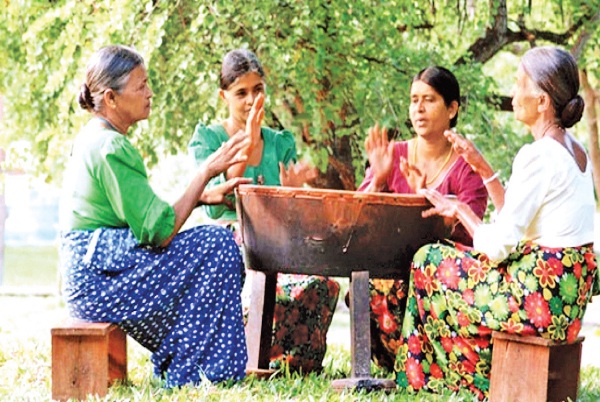The Aluth Avurudu season has arrived in Sri Lanka! If you are on a tour of Sri Lanka during the month of April, here are a few things that will be the norm across the island.
Commercially…
Busier than ever activity ranges from textile shops to tailors to sweet eats outlets to grocers to the humble roadside sellers of clayware.
People grumble about the cost of ordinary commodities – yet, as 12th April approaches, the frenzy will begin. New clothes are a must and so are exchanges of presents – which commonly include cash and clothing. Hence people will flock to vendors that sell saris, skirts, shirts, sarongs and other apparel for themselves and their family.
Domestically…
Housewives will be running from one end to the other to grab groceries, buy clay pots for boiling milk, sew new costumes for their little Avurudu Kumaraya’s and Kumari’s (Prince and Princesses) to wear, and spring clean their houses for the New Year festivities. While some women prefer to prepare the traditional Avurudu eatables at home and fill the aroma of their houses with hot oil of Kavum and Kokis, some prefer to just buy the sweets off the shelves from shops. It’s been about two decades since bakeries and grocers began selling these eatables on their shelves. Previously, home cooking was the only option.
In most Sinhalese homes, ‘kiribath’ (milk rice) is the first meal cooked using the prescribed recipe, at the auspicious time, facing the correct direction. The mother gives each member of the house a piece of kiribath, usually beginning with her husband. Children bow down to elders and then ganu denu takes place. This is the exchanging of coins and notes wrapped in a betel leaf. Gifts of cash and kind are also exchanged at this time.
Celebrations…
The Sinhala and Tamil New Year is a celebration of togetherness for families. Children go to their home towns to visit parents on or before the parana avurudu day (last day of the old year) and stay with them until the oil anointing and milk overflowing ceremonies are conducted at the auspicious times dictated by astrologers.
Temples will see a surge in devotees as religious activities are encouraged during the inauspicious period of the transition between the old and the New Year. Container loads of delicious sweets made with rice flour and kitul treacle circle around the homes of many. These traditional avurudu goodies are laid on trays, covered with lace covers and sent to neighbors as a habit of shared friendship and co-living.
Games…
- Pancha Keliya – an indoor game involving five small sea shells as dice, a coconut shell and a chart. All players of pancha keliya are divided into two teams.
- Porapol Gaheema – two teams of players: each take turns to throw coconuts until all the nuts in the basket have broken. The winning coconut is kept in the temple. It is believed that this game originated even before Buddhism came into being.
- Ankeliya – is more of a religious ritual in which young boys are divided into two teams who meet at a tugging field. Both teams have a buffalo horn hooked to each other which has to be pulled and broken. The team whose horn breaks first is the loser of the game.
- Pillow Fighting – two contestants fight against each other with pillows, but one hand is tied at the back onto a pole. The person who falls off loses and the next player takes his turn.
- Tug O’ War – a popular game played in many school sports meets in Sri lanka. Two teams of players line up facing in opposite directions, alongside a long rope. The center of the rope is marked and when the whistle blows, both teams pull hard. Whichever team is dragged onto the opposing team’s direction will lose the game.
- Olinda Keliya – women play this game with Olinda seeds and a stool that has two columns with seven holes in each row.
- Onchili Padeema – swinging on a tyre that is positioned as a seat and strongly tied from two sides, on to a tree.
- Raban contests – drumming competitions
- Coconut scraping competitions.
- Kanaa Alleema – a local version of “Blind man’s Bluff”.
These traditional games are designed to encourage making friends and enhance team spirit of people. Some of these activities also have a religious significance in honor of Sri Lanka’s deities.
During you holiday in Sri Lanka, you will most likely come across many of the traditional eatables and games being played at the hotels that you are staying. Do indulge in the sweet eats and take part in these fun filled games and have a more localized holiday experience!

